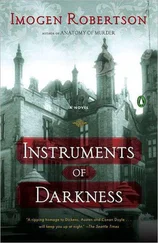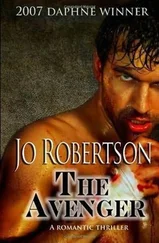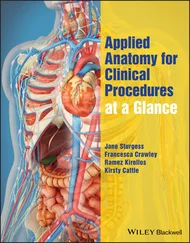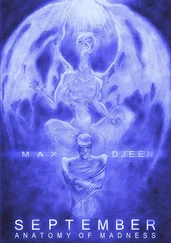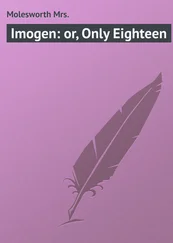Imogen Robertson - Anatomy of Murder
Здесь есть возможность читать онлайн «Imogen Robertson - Anatomy of Murder» весь текст электронной книги совершенно бесплатно (целиком полную версию без сокращений). В некоторых случаях можно слушать аудио, скачать через торрент в формате fb2 и присутствует краткое содержание. Год выпуска: 2012, Издательство: PENGUIN group, Жанр: Исторический детектив, на английском языке. Описание произведения, (предисловие) а так же отзывы посетителей доступны на портале библиотеки ЛибКат.
- Название:Anatomy of Murder
- Автор:
- Издательство:PENGUIN group
- Жанр:
- Год:2012
- ISBN:нет данных
- Рейтинг книги:5 / 5. Голосов: 1
-
Избранное:Добавить в избранное
- Отзывы:
-
Ваша оценка:
- 100
- 1
- 2
- 3
- 4
- 5
Anatomy of Murder: краткое содержание, описание и аннотация
Предлагаем к чтению аннотацию, описание, краткое содержание или предисловие (зависит от того, что написал сам автор книги «Anatomy of Murder»). Если вы не нашли необходимую информацию о книге — напишите в комментариях, мы постараемся отыскать её.
Anatomy of Murder — читать онлайн бесплатно полную книгу (весь текст) целиком
Ниже представлен текст книги, разбитый по страницам. Система сохранения места последней прочитанной страницы, позволяет с удобством читать онлайн бесплатно книгу «Anatomy of Murder», без необходимости каждый раз заново искать на чём Вы остановились. Поставьте закладку, и сможете в любой момент перейти на страницу, на которой закончили чтение.
Интервал:
Закладка:
Gaskin saw Harriet looking at them and commented, “The works of one of our former guests, the daughter of a churchman whose habits of piety became rather hysteric when she reached thirty and found herself still unmarried. Such things can twist the delicate constitution of a female.” He shook his head very sadly. “She is returned to her family now, however. Her father was widowed and she keeps house for him. One of our successes.”
“Have you many?” Crowther asked, peering at a rather fantastical landscape of ruined towers and distant mountains.
Gaskin lifted his eyebrows and nodded sagely with a satisfied smile. “Indeed, indeed. Mostly we offer care to those not fit for the wider world, and give what comfort we can before their enfeebled constitutions fail, but oftentimes people leave us ready to rejoin their families in safety and health. Though I do not know what prospects I hold out for poor Theophilius. He is sustained here by a legacy of his father’s. That wise gentleman arranged for the interest to be paid directly to this house quarterly after his death, which melancholy event occurred soon after his son’s removal here. It is nearly sufficient to cover dear Theo’s care. The rest of our usual fees I waive.” He turned and forced his smile on Harriet and Susan. “I am a fool to myself perhaps, but one must be charitable.”
Crowther sighed rather audibly and said, “What is the state of Mr. Leacroft?”
Gaskin stroked his chin and drew his brows together. “He is melancholic, sir. With some hysteric symptoms. At times he will laugh and sing, and try to teach his nurses and fellow patients to do the same and remain without sleep for a week, playing at his harpsichord and scribbling notes on any piece of paper he can find. Then he will spend a month barely able to raise his head. It is all we can do at such times to persuade him to take nourishment.”
“What do you do with the music he writes, sir?” Susan asked softly.
“We use it to light the fires, Lady Susan.” Harriet felt Susan stiffen at her side, but she made no further comment. “But how interesting that you ask. The young gentleman in the picture asked the very same thing.”
“Indeed?” Harriet said. “And what did the other gentleman who visited ask you, sir?”
Mr. Gaskin put his nose in the air. “Hmph. That gentleman. . I did not take to him, madam. I confess I did not. He asked nothing, and told me no more than his name.” He tilted again toward Susan. “I sensed no breeding in him,” he added, and winked.
Both Harriet and Crowther were drawing breath to ask something further when they heard a long keening wail from the upper story. Lady Susan started and reached for Harriet’s hand. Mr. Gaskin merely looked annoyed.
“Mrs. Lightfoot!” He looked between the ladies with a wet smile. “A tragic case. Confined here only a fortnight ago by her husband. Her behavior had become so troubling he had no other choice, poor man. She resents it-but she will learn in time. However, you must excuse me. Mr. Leacroft’s room is at the end of the corridor. You may go in. I fear I am required elsewhere.” He bundled back the way they had come.
Harriet looked with speaking rage at Crowther. He found he could do nothing but drop his eyes.
Jocasta left Ripley and the chophouse satisfied, and found Sam and Boyo waiting for her opposite the door. When she emerged she couldn’t help seeing how Sam’s eyes were darting about the street. While she was standing and guessing a way through the carts and horses that mired the road, she noticed a tall thin man pass by Sam, and though he gave him no look or word, the boy cowered to the wall. Again Jocasta wished she’d shut Sam up in the cobbler’s cellar and fetched him when all was done and laid down, but the one thing the lad hated more than being out and about was being anywhere without her, and remembering the loss she had let fall on him, she couldn’t deny him. He beamed when he saw her, and even more when she put a pie into his hand. It was still hot from the oven and he had to pull his raggy sleeves forward to hold it.
“What’s the word, Mrs. Bligh?” he said, as he blew on it.
“Fred will be in there tonight, and Ripley will find a way to hold him a while. Now be ready to eat that and trot too. We’re up to Seven Dials now. Time for you to meet a very old friend.”
Sam took a great bite of his pie and wiped the gravy off his chin.
3
Crowther knocked lightly on the door of the room Gaskin had indicated, then opened it as Harriet and Susan waited in the shadows beyond. He looked into the room for a second, then gesturing at them to follow him, he stepped inside.
The apartment in which they found themselves was large, but shabby. It was lit by a high bay window, and a number of books and papers were scattered around the surfaces and floors. Some servant of the place had a care of Mr. Leacroft, however. The furniture might be worn or fraying, but it was cleaner than the hallway from which they had come. Someone had made an effort to wipe the lower panes of the window to provide a view; a metronome and tuning fork were arranged like ornaments on the top of the mantelpiece, and above it hung a watercolor of a man at a keyboard. Harriet recognized the hand of the artist whose works filled the hallway. She showed herself a better artist in this study than in her landscapes.
The room depicted was recognizably the one in which they now stood, but in the picture it was lit with summer sunshine and there were fresh flowers on the desk in the window. The figure at the keyboard was touchingly caught as if in mid-flourish with one hand raised from the instrument. The whole figure leaned forward into his playing; energy flew from him. It seemed Theophilius Leacroft still had the power to inspire at times.
The contrast between the image and the present gloom of the chamber was distressing. The keys of the harpsichord were covered and the stool tucked firmly away. It took Harriet a few moments to see the model of the player in the room itself, but as they reached the center of the chamber Mr. Leacroft moved in his seat, and her eyes found him in the gloom. He was lost in the folds of a great armchair that looked through the streaked window into the ill-kept garden beyond. He turned toward them, and Harriet was surprised to see a much younger man than she had expected. He could be no more than forty, and his face was unlined. His head had been shaved, but though he wore no wig, he was decently dressed. An auburn stubble marked out the edge of a high forehead and his eyes were as green as Harriet’s own. He looked very tired, and having blinked once at the company who had intruded on him, turned back toward the garden.
“Angel, demon or fool? Who visits today?” he said. His voice had the weariness of all time about it, but was still clear and cool. Its habits of musicality could not, it seemed, be hidden even in this air of fatigue. Harriet approached.
“We are none of these, Mr. Leacroft, I believe, and we are sorry to trouble you, but there are some things we must ask you.”
He continued to stare into the garden and sighed but did not speak. Lady Susan moved toward the harpsichord. Her fundamental nature as a musician best showed itself in that whenever she entered a room where there was an instrument, she could not rest until she had tried it. Crowther, meanwhile, pulled the portrait of Bywater from his pocket again and placed it in front of Leacroft’s eyes.
“Do you know this gentleman, sir? We believe he came to see you twice some little time ago.”
Mr. Leacroft neither responded nor looked at the paper in front of him.
Harriet caught Crowther’s eye. He removed the paper and put it into his pocket again.
“We are sorry to trouble you, sir, but it is a matter of the greatest importance,” Harriet said.
Читать дальшеИнтервал:
Закладка:
Похожие книги на «Anatomy of Murder»
Представляем Вашему вниманию похожие книги на «Anatomy of Murder» списком для выбора. Мы отобрали схожую по названию и смыслу литературу в надежде предоставить читателям больше вариантов отыскать новые, интересные, ещё непрочитанные произведения.
Обсуждение, отзывы о книге «Anatomy of Murder» и просто собственные мнения читателей. Оставьте ваши комментарии, напишите, что Вы думаете о произведении, его смысле или главных героях. Укажите что конкретно понравилось, а что нет, и почему Вы так считаете.





